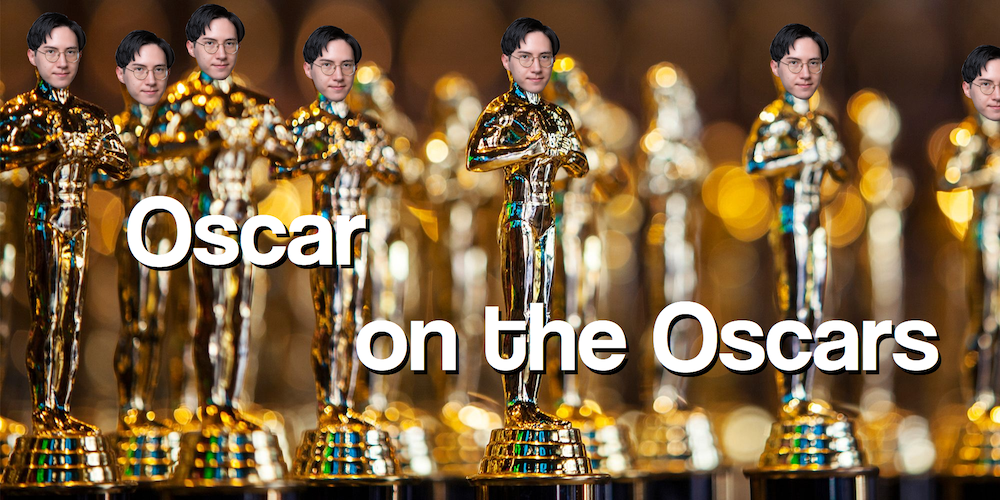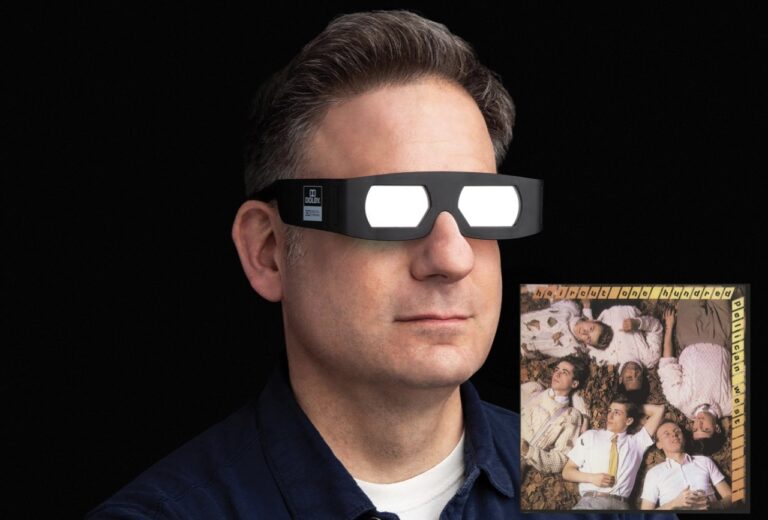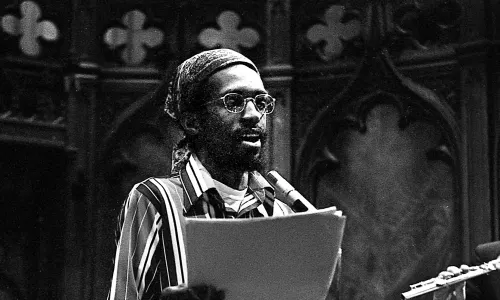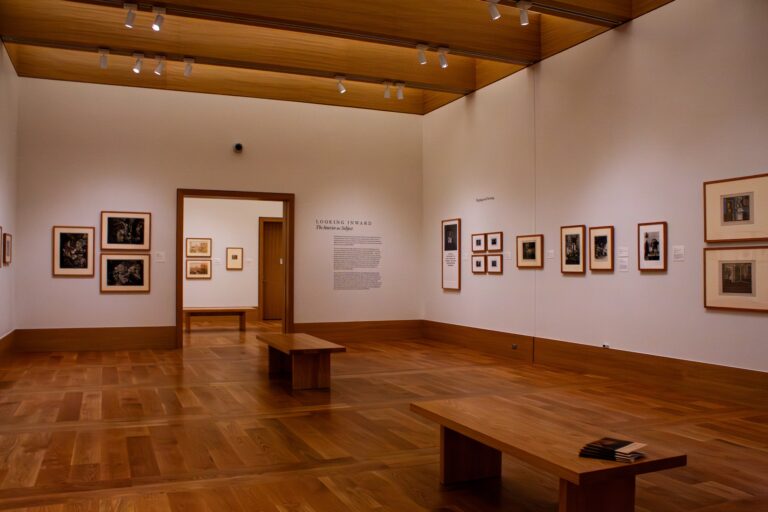Oscar on the Oscars: Groundbreaking Winners and a Well-Staged Ceremony at the 95th Academy Awards

The 95th Academy Awards, which aired on Sunday, Mar. 12, were perhaps the best I’ve seen in my four years doing this column. The ceremony itself was a welcome return to form, with host Jimmy Kimmel smoothly presiding over the show. Gone were the awkward gimmicks and shoehorned-in pop culture tedium of the past few years, in favor of a tasteful show that harkened back to Oscars of years past. But in giving many of the top awards to the genre-bending “Everything Everywhere All at Once,” the Academy also looked toward an exciting future for cinema.
“Everything Everywhere All at Once,” a heartfelt, kaleidoscopic sci-fi action comedy, took home seven awards, by far the most of the night, including the top prize of Best Picture. Co-directors and co-writers Daniel Kwan and Daniel Scheinert, known as the Daniels, took the prizes for Best Director and Best Original Screenplay. The pair is only the third-ever directing duo to win the former category, following Jerome Robbins and Robert Wise for “West Side Story” in 1961 and the Coen brothers for “No Country for Old Men” in 2007.
In their acceptance remarks, Kwan and Scheinert seemed overwhelmed with gratitude, with both thanking their parents. Kwan thanked his mother, an immigrant from Taiwan, for the sacrifices she made for him to pursue the creative career she couldn’t afford for herself. Scheinert also took a brief aside in his thanks to speak up against the current wave of anti-LGBTQ legislation in certain states, including Tennessee’s ban on public drag performances.
“Thank you [to my parents] for not squashing my creativity when I was making really disturbing horror films, or really perverted comedy films, or dressing in drag as a kid, which is a threat to nobody,” Scheinert said.
Paul Rogers took home the trophy for Best Editing and noted in his acceptance speech that “Everything Everywhere” was only his second feature film. Jamie Lee Curtis won Best Supporting Actress for her role as the antagonistic IRS inspector Deirdre Beaubeirdre. Taking the stage, Curtis thanked those who support “genre” films, science fiction and horror fare which is typically overlooked by the Academy, as well as her parents, Hollywood icons Janet Leigh and Tony Curtis, neither of whom won Oscars during their careers.
As the film centers on the experiences of a Chinese American immigrant family, the awards for “Everything Everywhere” also broke new ground for Asian artists at the Oscars. Early in the night, Ke Huy Quan took the trophy for Best Supporting Actor for his role as kind-hearted husband, Waymond Wang. Quan is only the second Asian winner in the category, the first since Haing S. Ngor won for his role in “The Killing Fields” in 1985. In a heartfelt speech, holding back tears, Quan shared details from his life story: the year he spent in a Hong Kong refugee camp as a child after fleeing war-torn Vietnam before coming to the United States, his decades-long hiatus from acting after struggling to find roles for Asian Americans, before his comeback, and his inspiration by the success of “Crazy Rich Asians” (2018).
“They say stories like that only happen in the movies,” Quan said. “I can’t believe it’s happening to me. This is the American dream.”
In the night’s penultimate award, Quan’s onscreen wife, Michelle Yeoh, won Best Actress for her role as Evelyn Wang, a harried matriarch who comes to accept her daughter’s queer identity through her look into the multiverse. Yeoh is the first Asian actress to win in the category and was presented her trophy by Halle Berry, the first Black woman and the only other woman of color to win. While Best Actress is traditionally presented by the previous year’s Best Actor winner, last year’s winner, Will Smith, was barred from attending due to his infamous slapping of Chris Rock during last year’s ceremony. While the slap was the target of several jokes from Kimmel, Smith’s absence also gave way to this poignant moment between Yeoh and Berry.
Beyond “Everything Everywhere,” it was a groundbreaking night for Asian artists at the Oscars overall, with eight Asian winners across different categories, the most ever in a single year. “The Elephant Whisperers” became the first Indian film to win in the category of Short Documentary Feature, and “Naatu Naatu,” a show stopping number from the Telugu-language Indian action epic “RRR,” became the first winner of Best Original Song from an Asian film.
“Naatu Naatu” was at the center of two of the night’s more memorable moments. One was its performance, as a team of dancers performed exciting, high-energy choreography to the song while Rahul Sipligunj and Kaala Bhairava sang. Then, as songwriters M.M. Keeravani and Chandrabose accepted their Oscar later in the night, Keeravani sang his acceptance speech to the tune of “Top of the World,” a 1973 song by the Carpenters that inspired him to embark on a career in music.
“All Quiet on the Western Front,” a German World War I film based on the classic novel of the same name, took home the second most awards after “Everything Everywhere:” Best International Feature, Best Cinematography, Best Original Score, and Best Production Design. The only other film to win multiple awards that night was “The Whale.” The movie’s makeup and prosthetics team, Adrien Morot, Judy Chin, and Anne Marie Bradley, took home trophies for Best Makeup and Hairstyling. They largely won for their work on transforming the film’s star, Brendan Fraser, into a morbidly obese English instructor with over 300 pounds of prosthetic makeup. Later in the night, Fraser won Best Actor, taking to the stage with a grateful, teary-eyed speech. Kimmel humorously noted that both Fraser and Quan, that night’s acting winners, had appeared together 30 years prior in “Encino Man,” a comedy about an unfrozen caveman, not exactly the fare you’d expect from Oscar winners.
But perhaps the takeaway from the 95th Academy Awards is that it’s hard to say what an Oscar winner is supposed to be anymore. Following the #OscarsSoWhite controversies of 2015 and 2016, the Academy has expanded its membership, resulting in a voting pool that is far younger, more balanced in gender, and far more racially diverse than just a few years ago. In the years since, we’ve seen Best Picture winners like “Moonlight,” “Parasite,” and “Everything Everywhere,” that, regardless of one’s opinion on those movies specifically, have utterly blown up the old stereotype of “Oscar bait” being buttoned-up, lily-white, historical dramas.
What’s more, with this year’s ceremony, the Academy seems to have shaken itself out of its years-long attempt to retool what the awards show should consist of. This year’s simple, straightforward affair was the most watchable the Oscars have been in many years, with the few new features added to the ceremony, such as live actors in the background of the stage to visualize the craft of things like editing or costume design, serving as subtle ways to appreciate the artistry of the films being honored. After the chaos of the last couple of Oscars ceremonies, the 95th Academy Awards were a pleasant surprise for my final installment of this column.
Oscar Kim Bauman can be reached at obauman@wesleyan.edu.








Leave a Reply